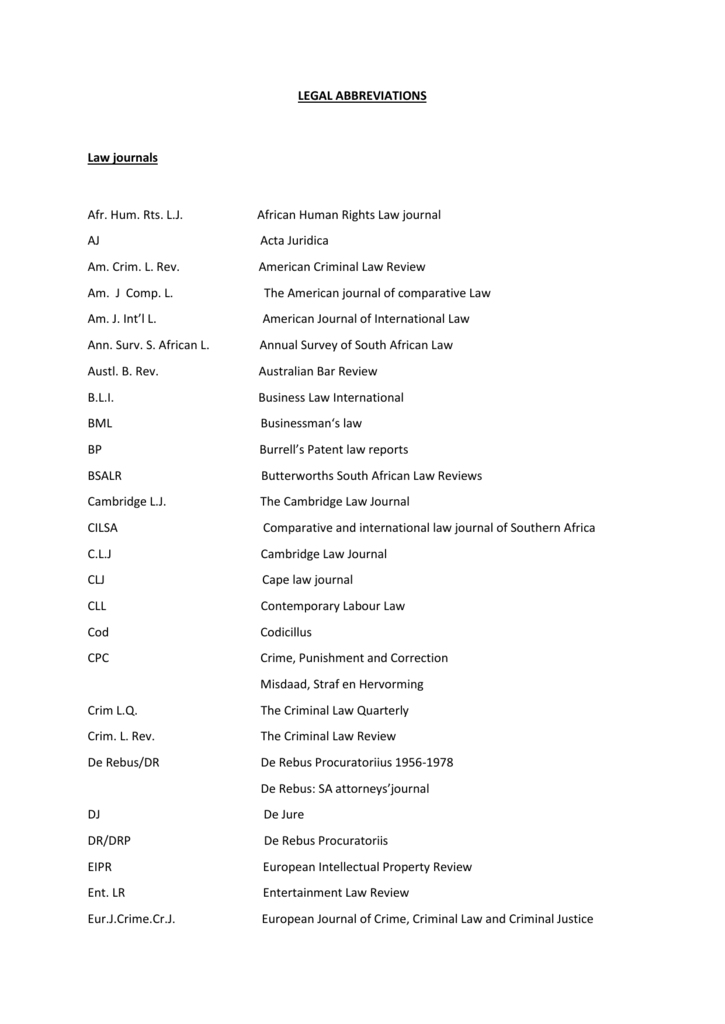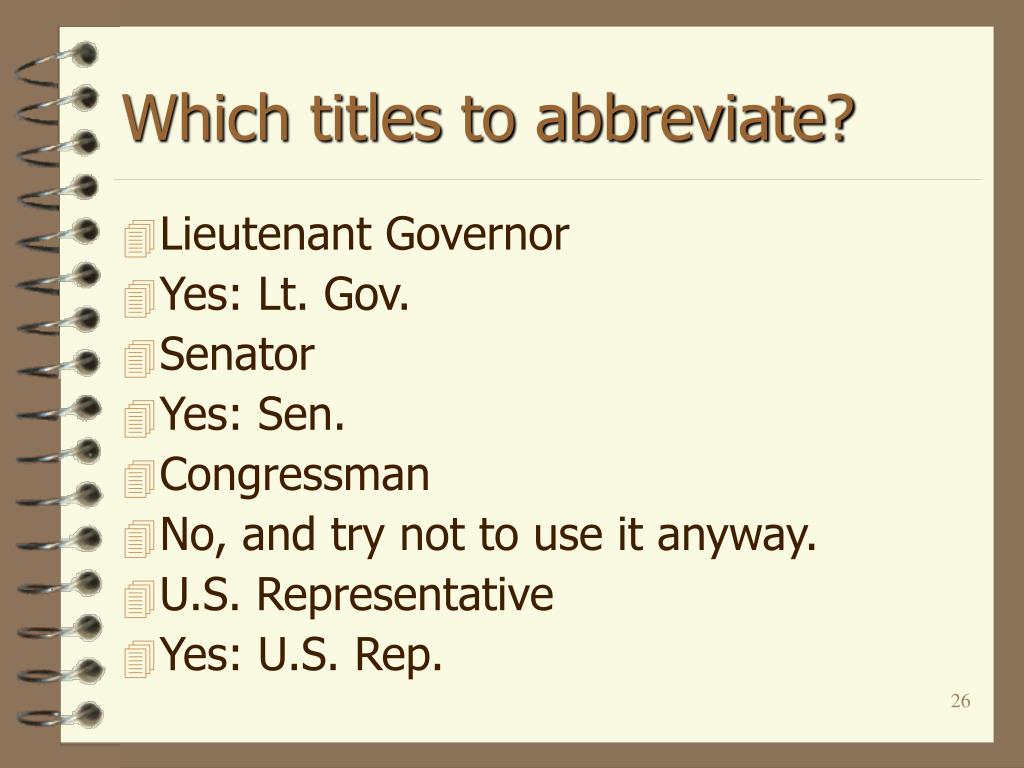Ever wondered how legal professionals manage to cram so much information onto business cards and letterheads? The world of law is riddled with abbreviations, and understanding them is key to navigating the legal landscape. One of the most frequently encountered is the abbreviation for "attorney," a term central to the entire legal profession.
The term "attorney" itself signifies a person qualified and licensed to practice law, acting as a representative or advocate. It's a word deeply embedded within the United States legal system, appearing in countless documents, from contracts and court filings to everyday correspondence. But how do you concisely refer to an attorney without sacrificing clarity? The answer lies in the strategic use of abbreviations.
Navigating legal documents often feels like deciphering a secret code. Learning the common shorthand used by legal professionals can significantly ease the process. One of the initial hurdles involves understanding how to properly refer to these legal experts. The use of abbreviations is, therefore, critical.
- Leo Wu Wu Lei Age Height Girlfriend Career Info Guide
- Miley Cyruss Growing Up Childhood Tennessee Roots More
Let's delve into the most common abbreviations, their origins, and how they function within the legal sphere. The abbreviation you're most likely to encounter is "atty." This diminutive form is a ubiquitous sight in legal documentation, streamlining the reference to a lawyer. It serves as a concise substitute for the full word and is employed throughout the legal field, including the United States and Canada (specifically Quebec, where it aligns with the French term "avocat").
However, it's not the only abbreviation in play. The term "esq.," short for "esquire," is another common sight, frequently appearing after an attorney's name. This honorific, steeped in tradition, signifies that an individual is a licensed and practicing attorney. It is typically used in more formal settings and holds significant weight in the legal world. Knowing the difference between these two common terms is crucial for understanding any legal document.
Further complicating matters, the legal profession is awash with other abbreviations. Some indicate the type of degree an attorney holds, such as "J.D." for Juris Doctor. Others refer to specific legal concepts or the organizational structure of a law firm. Understanding these nuances is crucial for anyone trying to comprehend the legal profession, be they law students, legal professionals, or anyone simply trying to understand the legal matters that directly affect them.
- Jackerman Exploring Claires Evolution Studio Insights
- Ken Jennings Height How Tall Is The Jeopardy Legend
Beyond the specific abbreviations for "attorney," an understanding of legal terminology is vital. The legal system is an alphabet soup of terms. The abbreviation for the district attorney is "DA," frequently used in legal contexts. The prosecuting attorney or prosecutor is often referred to as "PA." Recognizing these shortcuts is crucial when interpreting legal documents or following legal proceedings.
Consider the context. While "atty." is widely accepted, formal settings such as court filings and official correspondence usually prefer it. The same principles apply with "esq.," which adds a layer of formality by signaling the attorney's professional standing. The attorney may also be introduced by the term "Esq." This detail can assist in differentiating between a lawyer who is certified by the bar association, and those who are not. Thus, the significance of the abbreviation extends beyond mere convenience; it is a reflection of a person's position within the legal system and the conventions that govern it.
The choice of whether to use "atty." or "esq." often hinges on setting and audience. In general, "atty." maintains its popularity within legal circles, and it will always be the most common abbreviation of the word "attorney." It serves as a rapid shorthand during notetaking, correspondences, and internal discussions within and between law firms. In contrast, "esq." is reserved for formal use, reflecting an attorney's status as a member of the bar.
Let's summarize the key takeaways to ensure complete understanding:
- "Atty." stands for attorney.
- "Esq." stands for Esquire, a formal title denoting a licensed attorney.
- "DA" stands for District Attorney.
- "PA" stands for Prosecuting Attorney.
This insight will improve comprehension when reading and interpreting legal documents.
For those needing to delve even further, the abbreviations are not limited to attorneys. Legal professionals and anyone engaged in legal matters will encounter a multitude of abbreviations to describe different entities. For example, APC indicates the type of corporation, whereas "LLC" denotes a limited liability company. All of these contribute to a complex landscape of legal shorthand. This complexity has evolved over time, leading to the vast array of legal acronyms currently in use.
For more in-depth information, one can consult resources like the Bluebook, which meticulously catalogs various abbreviations, or visit online dictionaries of acronyms and abbreviations. These sources will give greater insight and assist anyone who wants to understand the field of law.
To sum up, the most prevalent abbreviation for the word "attorney" is "atty." which finds widespread use in legal documents, correspondence, and business cards. The term "esq" is employed in the more formal contexts, to provide a clear and immediate recognition of the attorney's status and qualifications.
Understanding these abbreviations will improve your ability to navigate the often complex world of law. It will help improve your communication with legal professionals and decode the jargon that appears everywhere from court documents to news reports. Armed with this understanding, you can now approach any legal document with newfound confidence and clarity.
Therefore, mastering these common abbreviations is a critical first step toward a complete understanding of the legal system.
The practice of law demands both accuracy and efficiency. Abbreviations like "atty." and "esq." represent a means of maintaining this balance. They offer an essential shorthand that streamlines communication and ensures precision in an environment where every word can have considerable weight.
This article has been updated to ensure the latest compliance and practices.



Detail Author:
- Name : Sabryna Schoen
- Username : russel.isabella
- Email : ben53@nienow.com
- Birthdate : 1984-06-22
- Address : 7529 Swift Lodge West Watsonburgh, GA 95220-7934
- Phone : +1-309-724-9738
- Company : Keebler PLC
- Job : CSI
- Bio : Atque qui sed qui facilis consequatur voluptatem et. Aut consectetur numquam dolorem vel nobis reiciendis. Autem velit cupiditate quis dolores.
Socials
facebook:
- url : https://facebook.com/helmer_bechtelar
- username : helmer_bechtelar
- bio : Quasi odit impedit dicta natus in quis omnis. Vel adipisci dolorum molestiae.
- followers : 4729
- following : 2530
linkedin:
- url : https://linkedin.com/in/hbechtelar
- username : hbechtelar
- bio : Odio sequi saepe aliquid et velit voluptatum.
- followers : 2114
- following : 1818
twitter:
- url : https://twitter.com/helmer_bechtelar
- username : helmer_bechtelar
- bio : Quisquam autem commodi dolor odio quibusdam corporis sunt. Enim dolores qui eveniet sed saepe enim minima. Dignissimos voluptas labore quis incidunt.
- followers : 989
- following : 2720
instagram:
- url : https://instagram.com/hbechtelar
- username : hbechtelar
- bio : Delectus aut autem quisquam quia commodi eaque. Eius ipsam perferendis temporibus.
- followers : 5415
- following : 14